2023 (No. 1)
AHEAD Update
Dear AHEAD Colleagues,
Welcome to the latest issue of the AHEAD Update. As always, if you would like to post an item in the next Update, please just send it to us – thanks.
Proceedings Now Available
Livestock, Wildlife & Resilient Livelihoods: Ways Forward in Namibia's Component of KAZA
In September 2022, Namibia's Ministry of Agriculture, Water and Land Reform (MAWLR), through the Directorate of Veterinary Services (DVS), and the Ministry of Environment, Forestry and Tourism (MEFT) hosted the above-mentioned workshop, in collaboration with AHEAD and WWF-Namibia.
The forum brought together over 40 participants and provided an opportunity to (i) review the history and current state of commodity-based trade (CBT) in Namibia, (ii) develop a shared understanding of how successful CBT can enhance prospects for resilient livelihoods, and (iii) share thoughts on the border fences between Namibia and Botswana in terms of historical vs. current livestock disease management and wildlife conservation (connectivity) needs.
New Resources

Huang, RM et al. (2022) Mapping Potential Connections between Southern Africa's Elephant Populations.
PLoS ONE
A new study highlights the importance of reconnecting elephant habitats by opening safe corridors for elephant dispersal, including through rethinking veterinary fencing, in southern Africa.
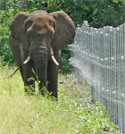
Pinnock, D (2022) Mapping a Future and Sustainable Pathways for Southern Africa's Wild Elephants.
Daily Maverick
This news article points out what factors, including fences, are restricting critical elephant movements in southern Africa.
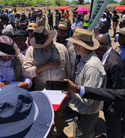
Quarantine Launch for Greater Access to Wildlife Friendly Beef.
CLAWS
A mobile livestock quarantine facility to increase market access and ensure CBT compliance was recently launched in northern Botswana (an FMD endemic area). It is being implemented by CLAWS in partnership with Herding 4 Health, Eretsha Village and the Government of Botswana, and represents real progress towards reconciling conflicts at the livestock-wildlife interface.
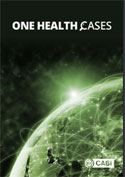
Caron, A et al. (2022) Social-Ecological System Health in Transfrontier Conservation Areas to Promote the Coexistence between People and Nature.
One Health Cases
Conserving natural resources while producing food in natural landscapes is a challenge that requires ecosystem health and social-ecological systems thinking.
Upcoming Meetings

SAVA Wildlife Congress
9-11 Mar 2023, Muldersdrift, South Africa
The 3-day congress will focus on immobilization, air and other transport, disease and intensive management.
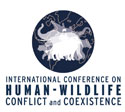
International Conference on Human-Wildlife Conflict and Coexistence
30 Mar-1 Apr 2023, Oxford, UK
This conference will focus on the need for collaboration across disciplines and sectors in order to address human-wildlife conflicts worldwide.
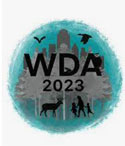
Wildlife Disease Association (WDA) Conference
29 Jul-4 Aug 2023, Athens, Georgia, USA
The 71st WDA conference will be an in-person event, with programming centered around the theme "People, Passion & Purpose: The Pathway to Wildlife Health."
Again, if you have items for the next AHEAD Update, please just let us know – thanks.
Yours in One Health,
Steve & Shirley
Steve Osofsky, DVM
Cornell University, College of Veterinary Medicine
Jay Hyman Professor of Wildlife Health & Health Policy
Director, AHEAD Program
s.osofsky@cornell.edu
Shirley Atkinson, MSc
Cornell University, College of Veterinary Medicine
Assistant Director, Wildlife Health & Health Policy
AHEAD Program Coordinator
s.atkinson@cornell.edu
What is AHEAD?
AHEAD works to create enabling environments that allow different and often competing sectors to literally come to the same table and find collaborative ways forward to address challenges at the interface of wildlife health, livestock health, and human health and livelihoods. We convene stakeholders and provide technical support and resources for projects locally identified as priorities. AHEAD, one of the first applied One Health programs, recognizes the need to look at health, disease, and the environment together, while always taking a given region's socioeconomic, political, and policy context into account.